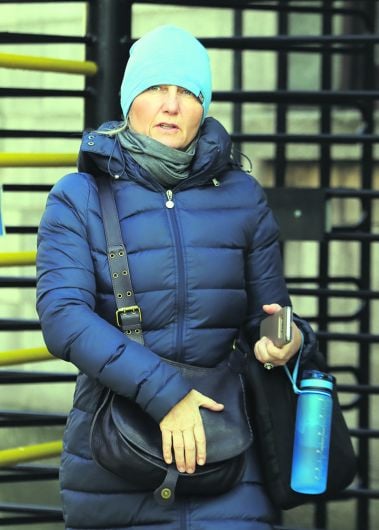A Clonakilty family of a 90-year-old woman who claimed scald injuries she suffered in a Co Dublin nursing home contributed to her death
A CLONAKILTY family of a 90-year-old woman who claimed scald injuries she suffered in a Co Dublin nursing home contributed to her death, were awarded just over €54,000 damages for their pain and suffering, loss, funeral and travel expenses, arising from the death of their relation.
Barrister Frank Crean told Circuit Court President, Mr Justice Raymond Groarke, last week in Dublin that the deceased Olive Sheeran had suffered severe scalding of her buttocks, left thigh and calf, heels and ankles when a water bottle burst in her bed.
Mr Crean, who appeared with John McCarthy of McCarthy solicitors Clonakilty, said SRCW Limited, the operators of Ferndene Nursing Home, Deansgrange Road, Blackrock, Co Dublin, had agreed to pay the family €54,406 damages, following assessment by The Injuries Board.
Carol Hayes, of Clonakilty, a daughter of the late Ms Sheeran, had sued SRCW on her own behalf, and on behalf of her brothers Mark and Conor Sheeran and Ms Sheeran’s grandchildren Adam (18), Jennifer (17), Alexandra (26), and Thomas Sheeran (20) and Peter (28), Matthias (26) and Oisin (23) Hayes.
Ms Hayes, an office manager, told the court in an affidavit that she was asking the court to approve the assessment ‘in respect of the fatal injuries’ which her mother, then 89, had sustained on January 6th 2017. She said her mother had been a resident in the home.
Mr Crean, outlining Ms Hayes’s affidavit, said the accident happened at 6pm. About five minutes before the accident happened, a nurse at the home had visited Ms Sheeran’s room and had taken two water bottles away to refill them.
A water bottle had then been placed beside Ms Sheeran’s feet and it burst shortly afterwards, severely scalding her.
Mr Crean told Judge Groarke that, following an investigation, all water bottles had been removed from use in the home and the investigator had recommended they should be replaced with coded stock which should be inspected on a monthly basis and replaced annually.
Ms Hayes stated in her affidavit that her mother had been rushed by ambulance to the emergency department of St Vincent’s Hospital before being transferred to the burns unit of St James’s Hospital, where her burns had been treated with antiseptic dressings, antibiotics and analgesia.
The court heard Ms Sheeran had developed pneumonia and a urinary tract infection and had required intravenous antibiotics to treat these symptoms. She had remained in hospital for about three months, by which time her wounds had almost completely healed.
‘I have been advised by my mother’s plastic surgeon that she suffered a life-threatening injury with a 31% predicted mortality,’ Ms Hayes said, adding that her mother died on August 21st, later that year.
Ms Hayes said she believed her mother didn’t fully recover from the injuries she had sustained as a result of the accident and the complications suffered while receiving treatment, and had remained bedridden from the date of her injuries until her death.
Mr Crean, in an overall opinion presented to the court, said the water bottle had been covered by a cloth bottle cosy, so the defect in it may not have been obvious to the nurse. He felt a court at a full trial would be unlikely to criticise the nurse who had refilled the water bottle and placed it in Ms Sheeran’s bed.
He said he was recommending the court accept the €54,406 assessment. Disbursement of the monies had already been agreed by Ms Sheeran’s dependants.
Judge Groarke, approving the settlement, complimented Ms Hayes for having pursued the matter as she had done.








